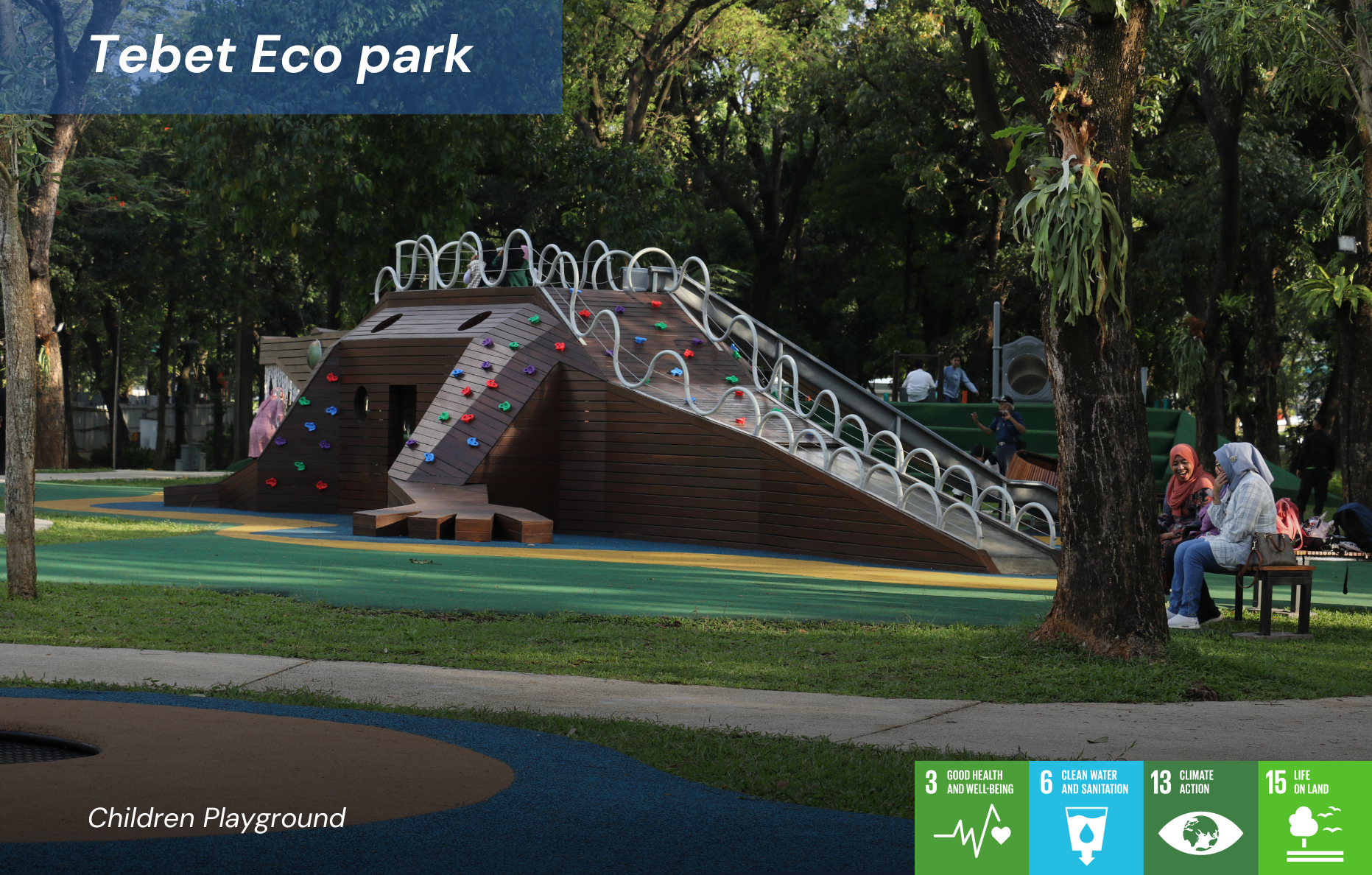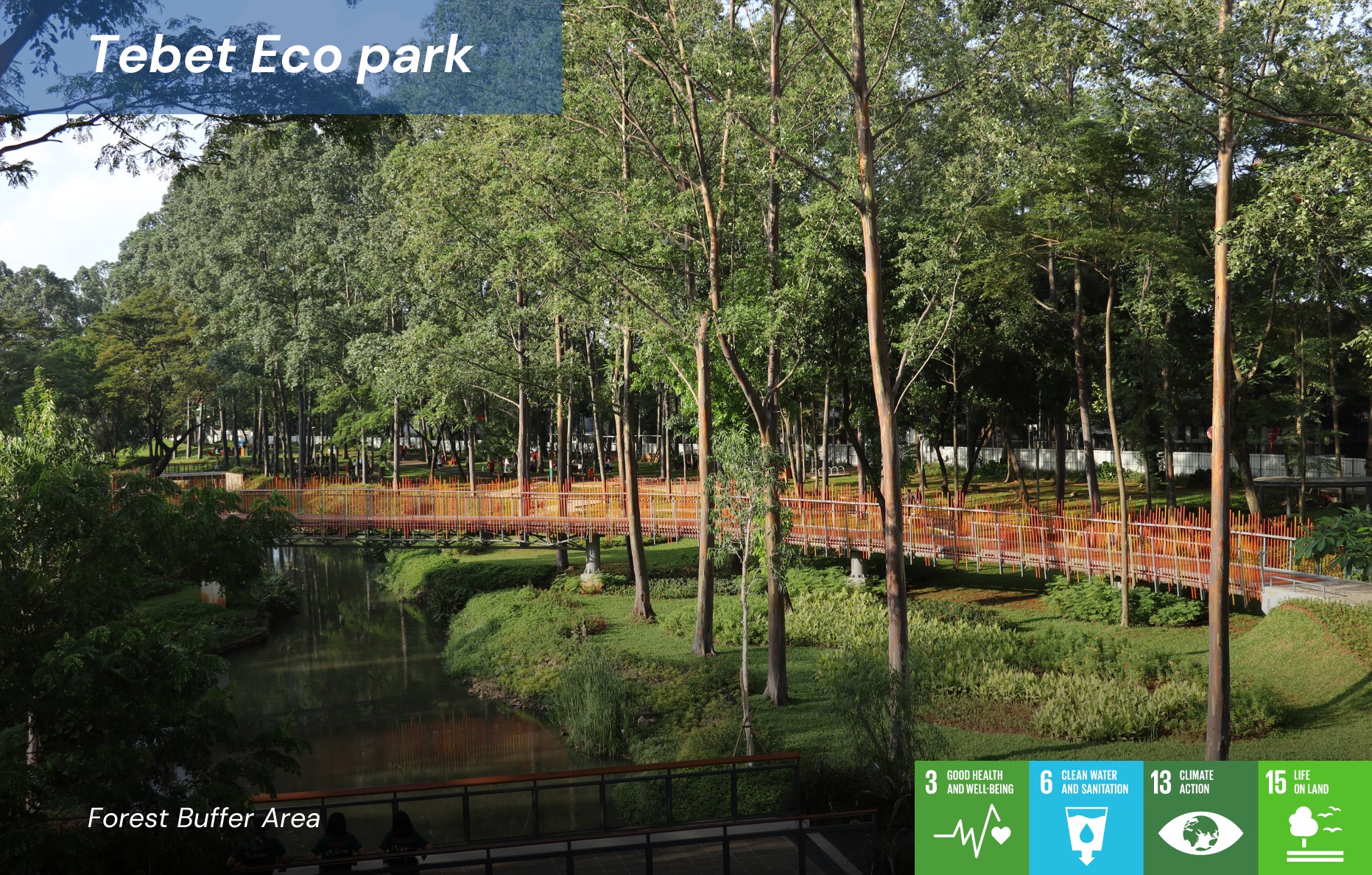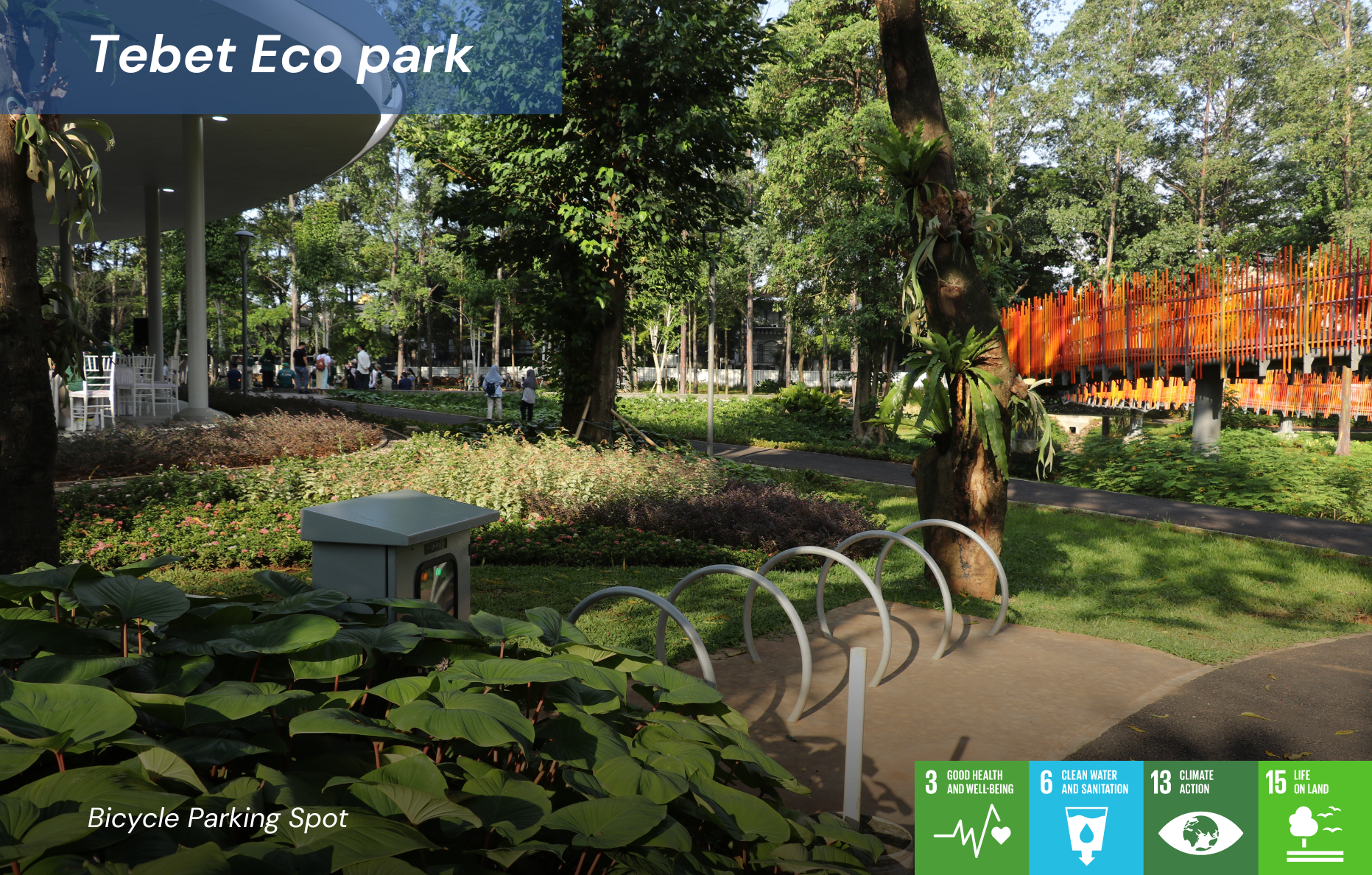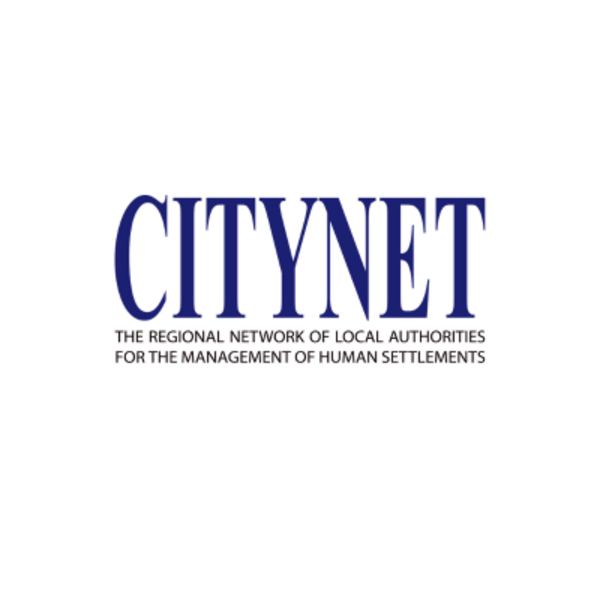City
Jakarta
Main actors
City Government, Private Sector
Project area
Neighborhood or district
Duration
Ongoing since 2021
Tebet Eco Park is a 7-hectare public park revitalization project located in South Jakarta that focuses on active restoration of the site's ecology through tree conservation and enhanced blue-green infrastructure. The ecological landscape design approach reduces flooding risk through river re-naturalization.
This new placemaking creates an inclusive environment offering a wide range of recreational activities, maximizing benefits for both park users and surrounding natural habitats. New active and passive park zones have been incorporated into the blue-green space to complement the ecologically restored waterway and lush vegetation.
This private-public collaboration, involving multiple government agencies, goes beyond simply revitalizing a park—it enhances the local community's quality of life and yields positive impacts on public well-being. Since its opening, the park has attracted an average of 15,000 daily visitors.
The broader impact of Tebet Eco Park represents growing public demand for recreational green spaces while setting a precedent as Jakarta's first large public park project implementing a nature-based solution approach.
This is an abbreviated version of the original case study on the Urban SDG Knowledge Platform with information provided by the Center for Research and Innovation, Regional Development Planning Agency of Jakarta Provincial Government.
External links / documents
On Map
The Map will be displayed after accepting cookie policy




